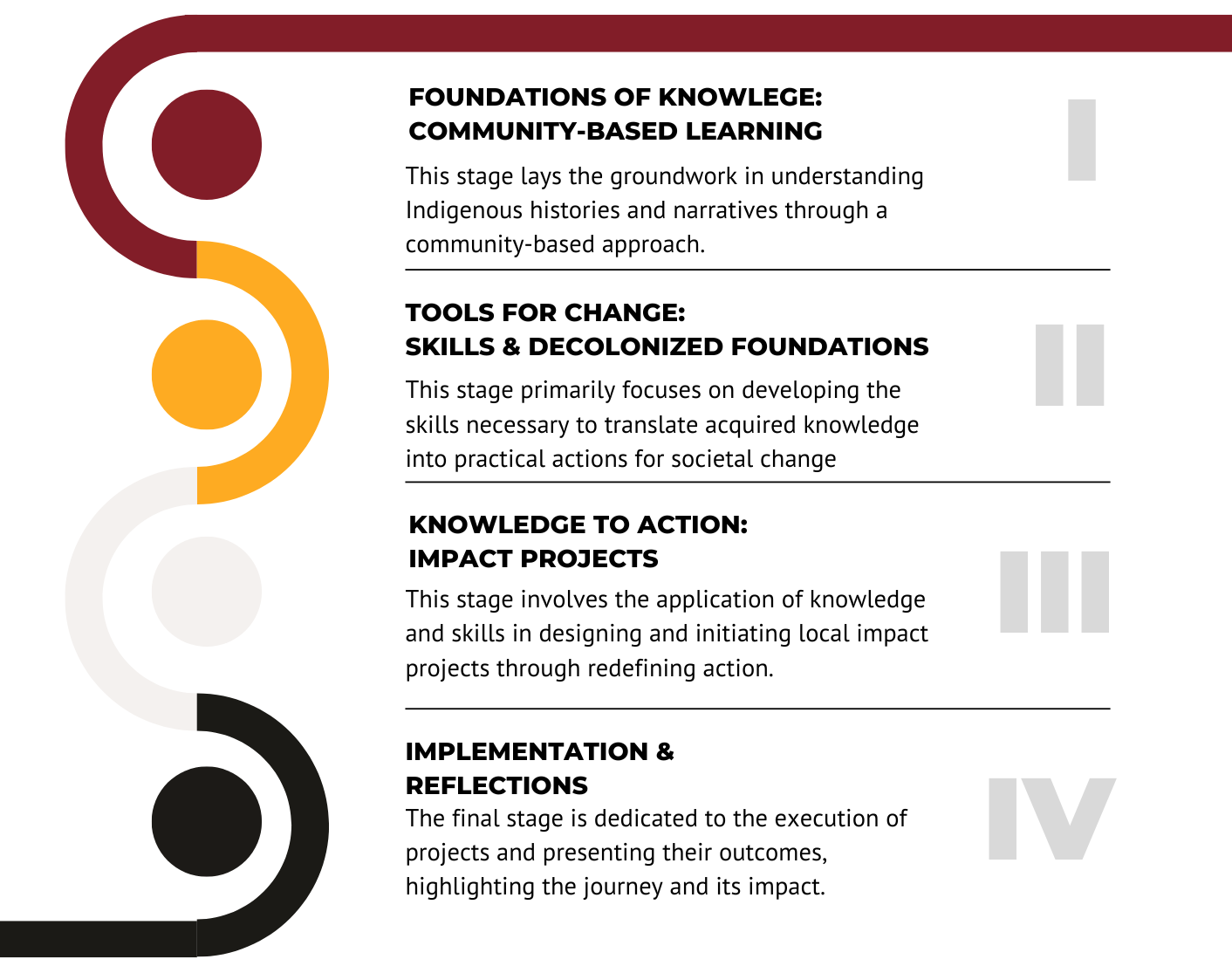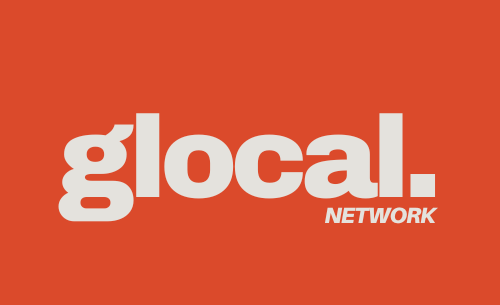YOUTH PROGRAM
12- week Youth Program (High School, Middle School, University) tailored to student cohorts.
COMMUNITY
Community Engagement opportunities to build relationships of reciprocity over transaction within insitutions
CONSULTING
Supporting institutions with decolonizing their structures through education and professional training programs

About Building Bridges
The Building Bridges Initiative, offers a unique educational reform that addresses the critical deficits in the portrayal and understanding of Indigenous history within Canadian institutions. Established in 2022 to foster a deep understanding of Indigenous histories, land relations, and cultures, our program is designed around the principles of decolonized learning. By intertwining hands-on, interactive methods with respect for land and relationality, we are nurturing informed, active allies poised to drive societal change intertwined with historical truth, mutual respect, and empathy.
At the heart of our initiative lies our commitment to fostering a decolonized future through reciprocal learning, interactive education, and deepened land and relational understanding, empowering youth to unlearn and relearn for transformative action. We envision a future where education is deeply rooted in respect for land and community. Guided by interactive, decolonized learning methods, we aim to empower informed, active allies committed to equitable societal change, fostering reciprocal understanding and the transformative power of relearning history and relationality.
OUR STORY
Our program is born out of the necessity to fill the profound gaps in mainstream education regarding Indigenous perspectives. The intention is multifaceted: to equip learning cohorts with the knowledge and skills to engage respectfully and effectively with Indigenous communities, to dismantle colonial ways of being, and to foster a bottom-up approach to social change. Beyond mere knowledge transfer, it aims to foster a learning journey that promotes community building, and kinship and dismantles colonial approaches to education and social interaction. The necessity for these outcomes stems from a profound need to create a more inclusive, empathetic, and socially conscious generation of learners who are equipped to contribute to societal change through bottom-up approaches, recognizing and addressing community needs through genuine collaboration rather than top-down impositions.
Value & Uniqueness
The program stands out for its commitment to decolonized learning methods, emphasizing hands-on, interactive experiences that facilitate deep, meaningful connections with Indigenous communities, activists, scholars, artists, etc. This approach not only enriches the educational experience but also cultivates a sense of responsibility, empathy, and active allyship among our learning communities. By focusing on dismantling colonial mindsets and fostering community oriented perspectives, Building Bridges offers a transformative educational model that is critically needed in today’s society.
Method of Delivery
The curriculum is delivered through a structured yet flexible 12-week module that combines in-person, and hybrid virtual learning with direct community engagement. This method ensures that our learning cohorts are not just passive recipients of information but active participants in a learning process that values experiential knowledge and mutual respect. Key to this approach is the integration of Indigenous knowledge keepers and community leaders into the learning journey, providing authentic insights and fostering a real sense of kinship and understanding.
4-STEP PROCESS
step 1: DIALOGUE and Vision
This initial phase involves collaborative discussions with community partners to outline a shared vision, goals, and needs. It’s a foundational step where we align our intentions with the specific requirements of our partners and future cohorts
Step 2: Tailoring the Program
Based on the insights gained from the first phase, we customize our conceptual program to address the unique needs of our partners and the diverse backgrounds of our cohorts, ensuring relevance and impact.
STEP 3: Delivery of the Program
With a tailored curriculum in place, we then proceed to the delivery phase, engaging learning cohorts in a dynamic, interactive learning experience that spans various modalities including storytelling, art, and land-based learning.
STEP 4: Evaluation and CONTINUITY
The final phase involves a thorough evaluation of the program outcomes against the initial goals, assessing the impact and determining future directions to continue advancing our shared vision.
CURRICULUM & PEDAGOGY
The Building Bridges program employs a structured, four-stage curriculum to transition learners from foundational knowledge to actionable change-making. Through our process, we aim to foster a harmonious relationship among all: learners, our team, partners, and the Indigenous communities we who are a part of our journey. Our approach ensures that each program we deliver is not just educational but also a respectful cultural exchange, where everyone’s voice is valued, and learning is reciprocal. By adapting and tailoring our methods, we strive to create a space where learning is a shared journey, and the outcomes benefit not just the individual but the community at large. This synergy is essential for the impactful and sustainable change we aim to achieve through the Building Bridges program.

OUR CURRICULUM & PEDAGOGICAL PROCESS
Building Bridges’ unique, research-based, and carefully crafted curriculum blends community engagement with hands-on interactive learning to redefine traditional educational paradigms, focusing on grassroots historical perspectives. Through the emphasis on bottom-up approaches to understanding history and primary skills to translate knowledge into social action, this model fosters the creation of a generation of active allies and politically aware youth. The curriculum develops skills, that enable students to apply their knowledge in contemporary contexts and actively participate in community-driven initiatives whilst identifying their positionally in relation to their land and community.

SINCE 2023
HSBC National Impact Award, UBC STEAR Fund, CWB Award, RBC Accelerator Grant, initiative recognized by BC Treaty Commission,
